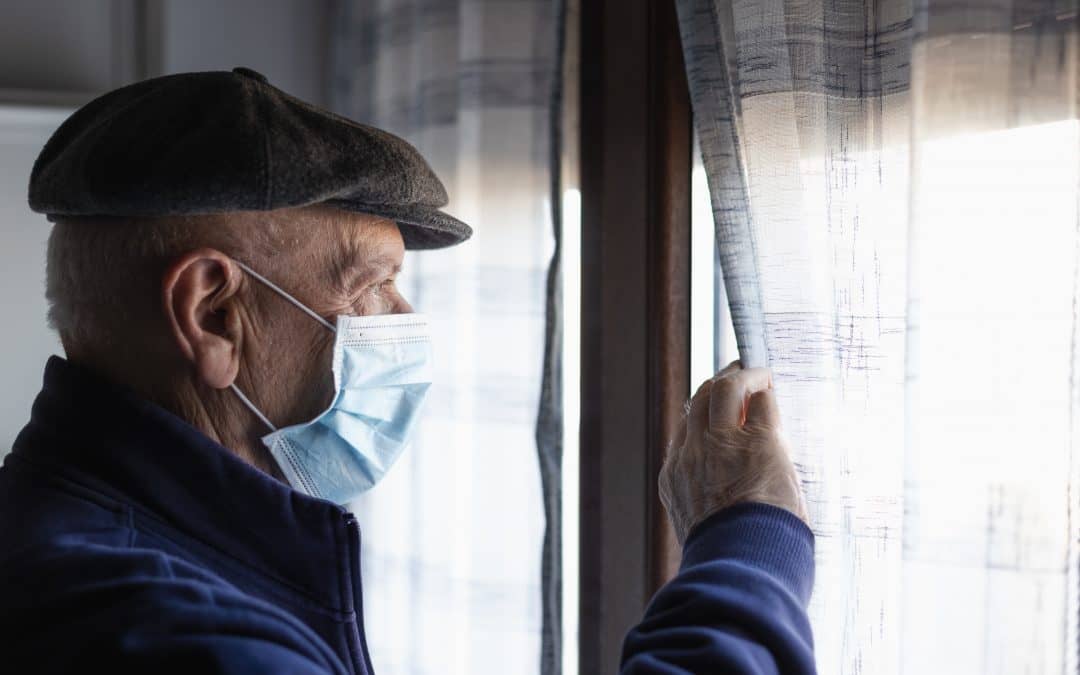As the UK’s coronavirus lockdown measures turn from weeks to months, concern over its effects on vulnerable and elderly people is mounting.
The National Domestic Abuse Helpline has seen a 25 per cent increase in requests for help, but many people do not associate domestic abuse with the elderly. The charity, Action on Elder Abuse (whose working name is Hourglass), reports that 34 per cent of people do not believe acts of violence towards an older person count as abuse, when in fact older people are at an especially high risk of domestic abuse during these times.
For the sake of their physical health, many older people are currently locked away from friends and family, and it can be difficult to know what occurs behind closed doors. Katrina Vollentine, partner and head of the Private Client team at Wollens, explains some of the more common forms of elder abuse, signs to look for and legal steps which can be taken.
What is elder abuse?
Elder abuse takes many forms, the most common of which in the UK are physical abuse, financial abuse, emotional abuse, and neglect.
Physical abuse could be handling a person roughly, administering unnecessary (or too much) medication, pushing, punching or spitting upon.
Financial abuse might be as obvious as straightforward theft but can also take the form of undue pressure, using guilt or other tools of manipulation.
Emotional abuse includes intimidation, humiliation, and anything which is meant to undermine. Neglect may be failing to provide adequate medical, emotional or physical care.
Abusers may be carers, family, and even strangers. Many fraudsters have adapted to the times, devising scams for which older people make the ideal target and for which isolation creates new opportunities.
How to spot abuse
Sometimes, abuse will have overt physical signs – for example, bruising, decreased range of movement or difficulty walking, sudden weight loss, poor hygiene, hearing raised voices, or signs of crying.
Other times, the signs will be more difficult to spot. Such as, a seemingly unexplained change to a will, a caregiver removing property from the home, or a change in caregivers’ visiting patterns – all of which could be entirely innocent.
Isolation from family members and friends, which often occurs in cases of coercive control, may be another sign. A combination of these signs may be cause for concern, but are more difficult to spot if your only contact is via a window or doorway and at a distance.
What can you do?
The appropriate action will always depend on the situation. The person involved may not have set out to abuse. For example, perhaps a carer has deliberately isolated an older person to prevent the contraction of coronavirus without thinking about the impact.
In such a case, speaking with the alleged abuser may be a good first step. Approach the conversation calmly and never start from a place of accusation. Offer any support that you can to make their job easier, such as sharing the duties. Many families are ensuring loved ones are cared for by working together, on a rotational basis. This can prevent carer burnout and can also provide a different face and some new conversation for the older person.
Think about ways to ensure needs are met without risking physical health. For example, cleaning one room whilst the vulnerable person is in another room or the garden.
It may also be helpful to speak directly with the person you are concerned about, ask if there is anything they need and to agree a sign (such as putting something in the window) if they need help. Now is an ideal time for extra telephone calls from children and grandchildren.

Katrina Vollentine, partner and Head of the Wollens Private Client team.
How to tackle serious concerns
If you are worried that direct conversations could result in greater harm, or if you are certain abuse is occurring, report your concerns to the police. They will be able to investigate and offer protection to the older person involved.
If you think neglect is occurring, your local authority’s adult social services team can also help by stepping in to provide the appropriate care.
Where the older person has an attorney or deputy and you believe that person is acting inappropriately, contact the Office of the Public Guardian safeguarding unit. A solicitor can help you through this process.
What legal steps can be taken?
It may be that you are worried about someone who has not already appointed an attorney. If they have mental capacity, they could choose to appoint an attorney now. However, this must be their choice and theirs alone. A solicitor can help to draft the necessary documents but can only act on the person’s instructions.
If the person no longer has mental capacity, an application to the Court of Protection for a deputyship order may be appropriate. This will allow you to make key decisions on their behalf and to manage their finances, if they are unable to do so. Where no attorney or deputy is appointed, the person’s bank will have limited action it can take if, for example, the person is being financially abused or has fallen victim to a scam. Without capacity, it is often the case that the person does not recognise this themselves. As such, they are unlikely to report it as fraud and there will be little the bank can do. Making an application to become someone’s deputy means that you can work with the bank in the person’s best interests.
Alternatively, it may be that you are worried about someone who already has an attorney or deputy acting for them. If so, various applications can be made to the Court of Protection to request supervision or removal of the acting attorney or deputy. The court may direct that the attorney or deputy is to report to the Office of the Public Guardian more regularly, or the court may appoint a new deputy to act alongside, or in place of, the original attorney or deputy. The type of application needed will depend on the individual circumstances and it is best to discuss these fully with a solicitor.
Court of Protection applications can be complicated and time-consuming to complete, but your solicitor can draft the application to ensure all the vital points are covered.
For further information or advice on any of these issues, please contact Katrina HERE or email us on [email protected]
This article is for general information only and does not constitute legal or professional advice. Please note that the law may have changed since this article was published.



